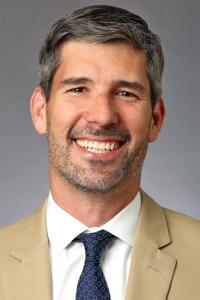Peds Ortho Team Publishes Study in Spine Deformity
Michael G. Vitale, MD, MPH; Benjamin D. Roye, MD, MPH; and emeritus professor David P. Roye Jr., MD recently published an article in Spine Deformity titled “Serial casting for early onset scoliosis and its effects on health‑related quality of life during and after discontinuation of treatment.”
For patients with early onset scoliosis or EOS, serial body casting is a safer treatment method when compared to surgical intervention. However, there is no published evidence documenting the impact of casting on health-related quality of life for patients and their caregivers.
This study sought to bridge that gap. Researchers used a 24-Item Early Onset Scoliosis Questionnaire to compare the health-related quality of life of patients with EOS as well as the burden of care for caregivers before, during, and after treatment with Mehta casting. Patients, who had serial casting between 2005 to 2016, were queried from two EOS databases and sorted into two subgroups (those with idiopathic etiology, and those with non-idiopathic etiology) and analyzed separately. Each patient completed the 24-Item Early Onset Scoliosis Questionnaire before during and after casting. Patients treated prior to their initial cast application, including bracing or surgical intervention, were excluded from the study.
The study found that serial body casting can prevent curve correction in patients with EOS. The psychosocial stresses caused by non-operative intervention can have negative impacts on health-related quality of life, for both idiopathic and non-idiopathic patients.
“While serial casting is an effective treatment strategy in the right patient with scoliosis,” said Dr. Vitale. “This study highlights that the process of multiple serial casts applied in the OR under general anesthesia may have untoward effects on psychosicial stress in patients and their families.”
Read the full article here.


